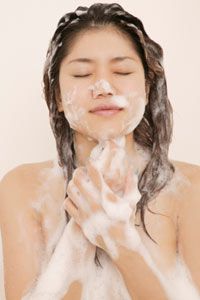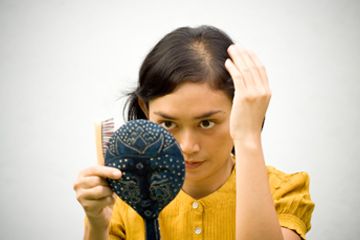You've had your sebaceous glands for some time now -- for your entire life, actually. They began to appear beneath your skin during your fourth month in the womb and are found in their highest concentration along your scalp and face, although they are found everywhere on your body except for the palms of your hands and the soles of your feet.
These glands are usually connected to an individual hair follicle (except on hairless places like your eyelids and lips, where they work alone). Now that you know what they are and how they formed, you might want to know what they do. Sebaceous glands are responsible for secreting sebum, the natural oils that moisturize and waterproof your skin and hair. Deep in the skin's dermal layer, specialized secretory cells that absorb fats from the body enter the sebaceous gland and disintegrate. At this point, these cells become sebum. The sebum is expressed into the lumen (shaft) of the hair follicle, where it's excreted up to the skin's outer layer, the stratum corneum. In other words, your body burps excreted fats and cellular debris onto your skin and hair.
Advertisement
No wonder we use shampoo.
As gross as it sounds, it provides a necessary function. As we've seen, sebum waterproofs and moisturizes your skin and hair. Without this stuff, the skin can dry and shed prematurely, leaving thriving cells exposed to the elements. But isn't allowing sebum to accumulate on our hair and skin the same as being unwashed and oily? In modern Western culture, it certainly is.
Our bathing and hair washing routines are based on a strange system of depleting the skin and hair of their natural oils by lathering up with soap and shampoo and then replenishing them with moisturizers and conditioners. We carry out this (usually) daily ritual for a couple of reasons: By Western standards, the appearance of oily, unwashed hair is generally unacceptable -- and it just feels kind of gross to go without a bath or shower for more than a couple of days. Secondly, these natural oils can lead skin conditions like acne vulgaris, where sebum becomes backed up in the hair follicles, creating a smorgasbord for bacteria, which break the fats into fatty acids. These create an allergic reaction that presents itself as acne.
For more information about hair washing, read Hair Washing: Fast Facts.
But if there are benefits and drawbacks to both washing and not washing your hair, it seems like there's a balance to be struck. How often should you wash your hair, exactly?
Advertisement


